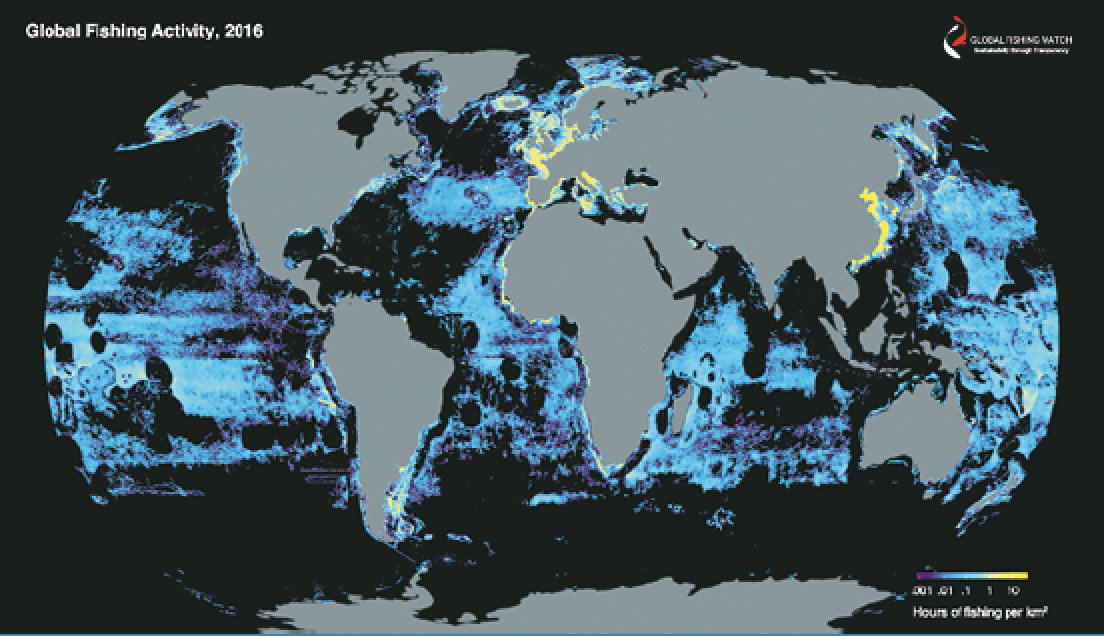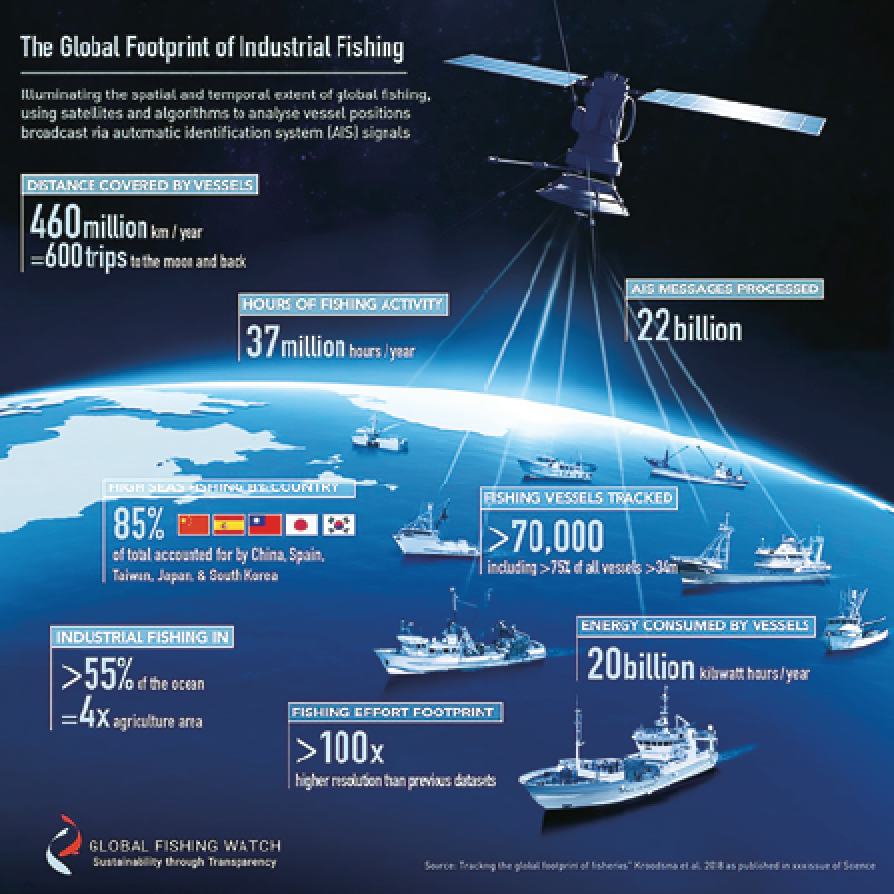According to the Food and Agriculture Organization of the United Nations (FAO), there are approximately 38 million fisherman or fish farmers in the world, and fishing and aquaculture provide direct and indirect employment to over 500 million people the world over. In fact, fishing is the most widespread means by which humans harvest natural resources.

Fishing activity by vessels broadcasting AIS. Fishing hotspots were seen in the Northeast Atlantic and the Mediterranean, Northwest Pacific, and in upwelling regions off South America and West Africa. Boundaries or ‘holes’ in effort show where different regulations apply, e.g., the exclusive economic zones of island states. Source: “Tracking the global footprint of fisheries,” Kroodsma el al, 2018.
Given the importance of fishing to the global economy, the better this sector is understood, the better we can ensure the resource is available for future generations.
This is an objective of a paper by Global Fishing Watch, in collaboration with their research partners, entitled “Tracking the Global Footprint in Fisheries,” which was recently published in Science magazine.
The paper analyzed billions AIS messages provided by Orbcomm to develop insights into the global fishing industry. Global Fishing Watch and their partners took advantage of new technology and creative use of data sources to identify more than 70,000 commercial fishing vessels.
Additionally, data was collected regarding the sizes of and engine powers of these vessels, what type of fishing they engaged in, and where and when they fished down to the hour and kilometer.
This new global view of fishing takes advantage of advances in satellite technology and big data processing and opens a new window to improved ocean and fishery management.
New research by Global Fishing Watch (globalfishingwatch.org), aided by Orbcomm AIS data, reveals when and where fishing occurs on a global scale for the first time, expanding opportunities for marine conservation and ocean management.
The research revealed that fishing extends to a least 55% of the ocean, which is four times more than the surface area taken up by surface agriculture. The results also suggest that fishing activity is more closely tied to cultural and political events, like holidays and fishing regulations, than naturally-occurring events, like El Niño or fish migrations.
In China, there is a significant decline in fishing during the annual fishing moratorium and the Chinese New Year. In the northern hemisphere, fishing activity declines over the weekend and breaks for Christmas. Interestingly, significant regions of the ocean are not heavily fished, and these areas may offer opportunities for low-cost marine conservation, creating ‘buffer zones’ which conservationists say help marine species to regenerate.
The data used to create this report and power the Global Fishing Watch fishing activity map is now available for download via the Global Fishing Watch Research Accelerator Program (globalfishingwatch.org/research/research-accelerator-program/). The researchers hope that this data provides the tools for scientists, advocates, governments, journalists and citizens to better understand and therefore better protect their oceans.

Orbcomm was selected by Global Fishing Watch (and its creators, the partnership between Google Oceans, Skytruth and Oceana) to be its launch partner for satellite AIS data services in part for the data quality and rich historical data archive, as well as for the flexibility in providing AIS data for use by the public to illuminate the problem of IUU Fishing to the world.
Collaborations between partners such as ORBCOMM and Global Fishing Watch show how technology and data can be used to achieve unexpected results, and how taking a new or unusual look at the data at hand can uncover remarkable findings.

Additional information is available at http://www2.orbcomm.com/ais-data
Asif Rehman is a Product Marketing Manager at ORBCOMM responsible for driving marketing initiatives for the transportation, heavy equipment, and maritime markets. He is a passionate B2B product marketer and his experience stretches from large multi-nationals to start-ups to mid-sized businesses and across technology sectors



